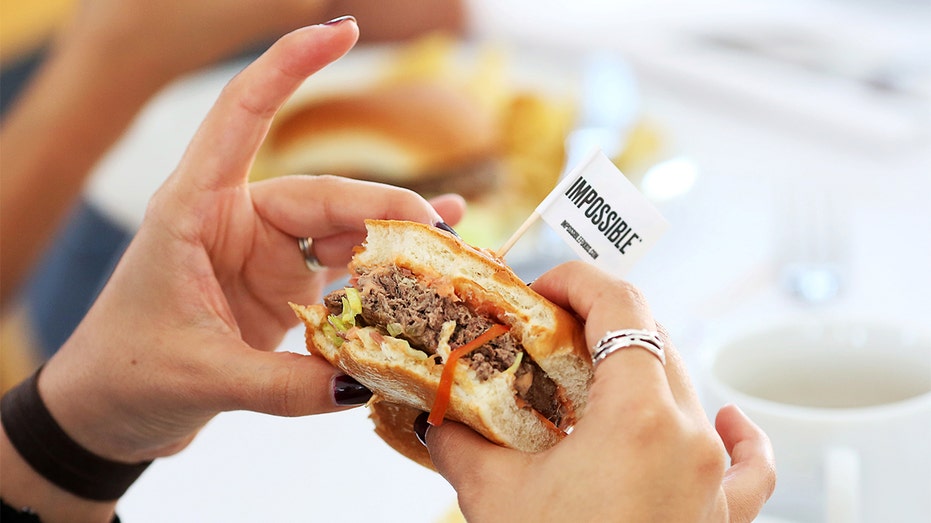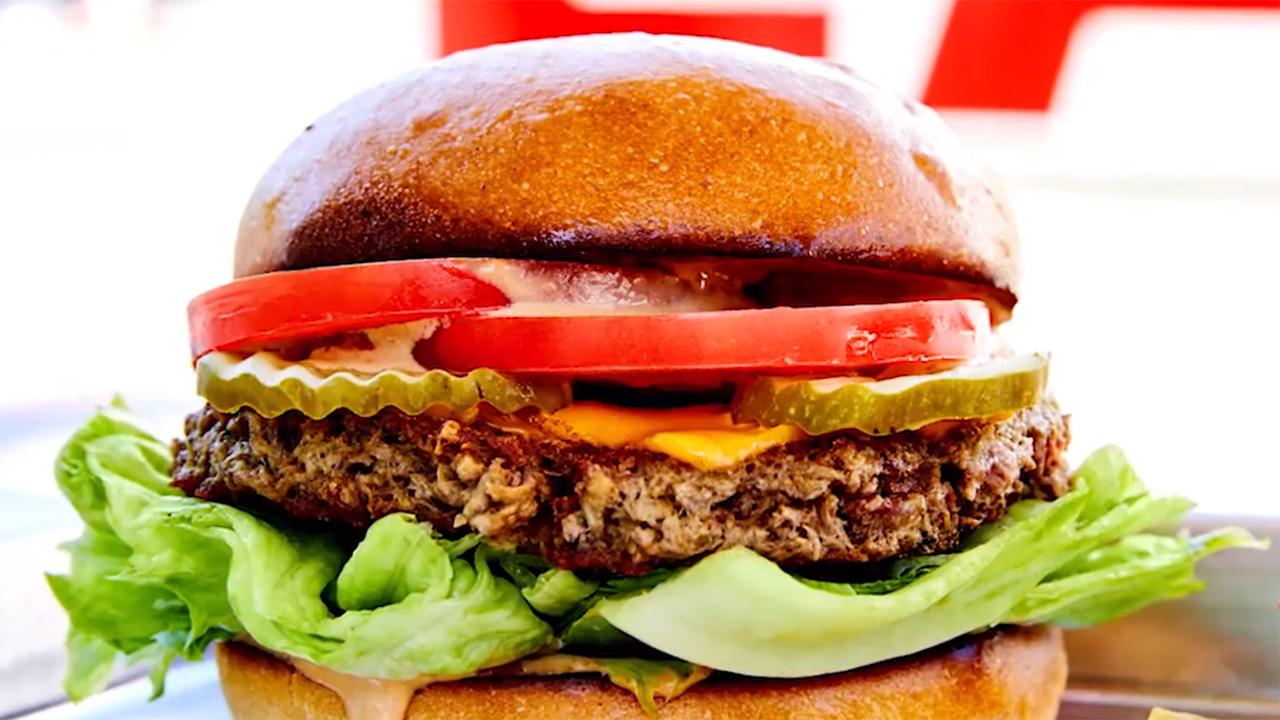Impossible Foods wins UN climate award for making plant-based meat alternatives
Company is urging the world to "reduce or eliminate the use of animals in the food system."
Silicon Valley food tech startup Impossible Foods accepted a major environmental award from the United Nations Tuesday as the company works to boost awareness of food's environmental impact.
Impossible Foods received the 2019 United Nations Global Climate Action Award in September for doing what some would say it does best, creating plant-based alternatives to meat.
Impossible Foods CEO and Founder Dr. Patrick O. Brown accepted the award with the 15 other winners at the 2019 United Nations Framework Convention on Climate Change in Madrid.
IMPOSSIBLE FOODS COO: I'M A HARDCORE MEAT EATER, I'M EXACTLY THE TARGET OF THE COMPANY
"Impossible Foods is honored to receive the UNFCCC's Planetary Health award to showcase plant-based meat as a true pathway to cut emissions and decarbonize the atmosphere. With solutions like the Impossible Burger, consumers can drive the movement to create a food system consistent with the urgent goals of the Paris Agreement," said Jessica Appelgren, vice president of communications for Impossible Foods.
The awards are given to 15 organizations around the world and highlight the most practical examples people are doing to combat climate change and fall within four specific areas of focus: Planetary Health, Climate Neutral Now, Women for Results and Financing for Climate Friendly Investment.
Impossible Foods took home an award in the "Planetary Health" category, which shines a light on solutions that balance the need for both human health and a healthy planet.
The awards are part of a "wider effort to mobilize action and ambition as national governments work toward implementing the Paris Climate Change Agreement and the Sustainable Development Goals," the United Nations said.
IMPOSSIBLE BURGERS AND OTHER FAKE MEAT HAS AMERICAN CATTLE RANCHERS ON DEFENSE
In the Paris Agreement, nearly 200 countries set their own national targets for reducing or controlling pollution of heat-trapping gases that lead to climate change. It was negotiated in 2015 with lots of prodding by the United States and China and went into effect in 2016. However, the Trump administration has notified the UN that it will withdraw from the Paris Agreement.

Journalists taste test the plant-based hamburgers during a media tour of Impossible Foods labs and processing plant in Redwood City, California, October 6, 2016. REUTERS/Beck Diefenbach
The conference in Madrid, where the company will accept its award, encompasses more than 25,000 participants from nearly 200 countries along with 50 heads of state. The conference, in part, draws attention to how to reduce the impact of "our meat-centric food system," including the "depletion of freshwater, emissions of toxic greenhouse gases and biodiversity collapse," according to the company.
GET FOX BUSINESS ON THE GO BY CLICKING HERE
At the conference, Impossible Foods urged youth activists to "accelerate the global transition to a sustainable food system" as it launched its #MeatisHeat social campaign.
The campaign draws attention to the impacts of a plant-based diet. The non-meat diet "reduce greenhouse gas emissions, and restore biodiverse ecosystems," the company said.
"Unless we act quickly to reduce or eliminate the use of animals in the food system, we are racing toward ecological disaster," said Brown. "But I'm hopeful because younger generations are quickly discovering that ‘meat is heat,’ and they are uniquely poised to turn us away from the brink of catastrophe."
CLICK HERE TO READ MORE ON FOX BUSINESS
The Associated Press contributed to this report.




















